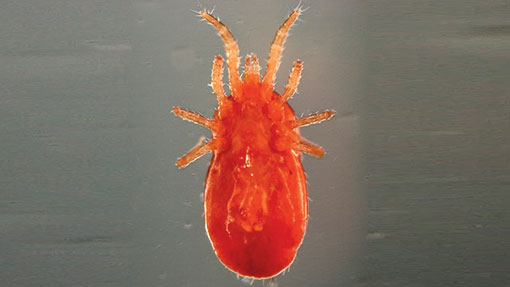New red mite vaccine on the way

A laying hen vaccine, developed in the UK and shown to be effective in reducing populations of red mite, is to enter commercial trials in 2015.
It is one of the first vaccines developed that will work against external parasites of any type.
Red mites cost the EU poultry industry about €130m/year (£102m/year), according to Professor Julie Fitzpatrick, chief executive of the Moredun Research Institute, which has led the vaccine’s development.
See also: New, faster test for Marek’s disease
She added that an estimated 83% of flocks across the continent were affected, with this rising to 87.5% of flocks in the UK.
Prof Fitzpatrick said the group had sought to create a vaccine as an alternative treatment, pointing to increasing resistance to some common insecticides.
The vaccine was first developed by researchers after proteins that cause hens to mount an immune response were identified, and injected into birds. This blood was then tested by feeding to red mites and monitoring their mortality.
Early trials proved that a vaccine developed from these proteins could be effective, and an on-farm test indicated sheds with vaccinated hens harboured a quarter of the red mite when compared with the control.
The next stage was to produce a recombinant vaccine that could be scaled up to commercially-viable production.
A version has been successful in generating 35% red mite mortality, but Prof Fitzpatrick said, by changing the combination of proteins, researchers hoped to up that total. She added, however, that the final vaccine would probably only be effective as part of a package of control alongside more established measures against red mites.
This report was based on a paper given at the recent International Egg Commission conference. For full coverage from the event subscribe to Poultry World.
